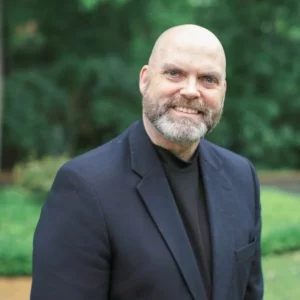Can you even begin to imagine what it must have been like when the Spirit of the Lord passed through Egypt and in every house someone died? Can you imagine the grief? Not just for days but for weeks or months, there must have been the high-pitched cry of wailing parents always in the air, after the Lord called for the slaughter of all the first-born among the Egyptians.
And while the Egyptians cried, the Israelites picked up everything they could carry and started walking. People unused to taking control of their own lives, not naturally gifted with faith, picked up their very lives and walked out into the desert.
If you didn’t know the Egyptians had been oppressing the Israelites for generations, if you didn’t know their hearts had grown so hard they’d forgotten how to feel, if you didn’t know the one, true God had chosen slaves to be his people, none of it would make sense.
That’s why the remembering became so important. And that’s why — out there in the desert, in the wild, as they turned to look at each other and wonder “what next?” — God taught his people to remember.
God taught them to remember because without the story, nothing else made sense. Until they learned to remember, learned to reinterpret their story so that God was at the center, they’d miss the great moves of God.
Until we learn to rightly remember, we will miss the great moves of God.
The great moves of God work by a familiar pattern. They often begin with slavery – to oppression, to things that harden hearts, to things that choke out freedom, with people orbiting around their own egos. The great moves begin with slaves entrenched for so long in mediocrity that they forget how oppressed they are.
Then comes the rescue, the invitation to go with God, to step out of slavery and into freedom. This is an invitation into the wild places of transformation, where the people learn that the story doesn’t in fact orbit around them but around the Lord of the Universe.
Rescue is most often a process, not an event. It is a desert to cross, a cross to bear. Out there in the grief over all that must be left behind, the children of God learn how their small stories fit into His Big Story. They learn to reorient; they discover their place outside the center. They learn the daily process of surrender and they learn to worship something bigger than themselves.
This pattern moves the people of God out of slavery, through the desert, and into the promises of God. In the story of God, you find this pattern employed over and over – slavery, rescue, desert, promises. This is the broad view of the Bible itself. Jesus tells us this is how the Kingdom comes: repent and start walking.
Out in the desert, in the wild, remembering is the first order of business. In the feasts and high holy days of the Old Testament, God’s people were disciplined to stop and remember, to tell the story, to draw up from their past so their future would rest on a higher plain. When Jesus reinterpreted those feasts so he became the center of the Story, he charged his followers: “From now on, every time you eat this bread or drink this cup, remember me.”
Remembering, we learn, is part of resurrection. Rightly interpreting the great moves is how we move on — not just for our sakes but for our children, also. In Exodus, chapter 12, God tells the people, “Eventually, you’ll have kids who won’t know The Story. They won’t move forward unless you show them where you’ve been.”
Even today, when Passover is celebrated by Jewish people, the youngest person in the room has the privilege of asking this question to invoke the telling of The Story: “What makes this day different from all other days?” God told the Israelites, “When the children ask, you tell them, ‘We do this because God is great. He brought us up out of our slavery into a desert so He could kill anything in us that wasn’t His. God stopped at nothing to make sure we became free people as He moved us across our desert and into His promises.’” When the Israelites heard it told this way, they bowed in worship.
A redemption story well remembered creates an atmosphere of awe.
Remembering is a key to transformation. Have you taken the time to rightly remember your story so that it becomes a dynamic force that focuses you beyond yourself and sends you out into the desert of transformation? Have you verbalized the great moves of God in your life? Have you confessed those things that have enslaved you? Have you soaked in the patterns, so you can recognize them and take authority as your future unfolds?
Have you learned to tell your story so it points in the direction of the divine wild and provokes worship?








